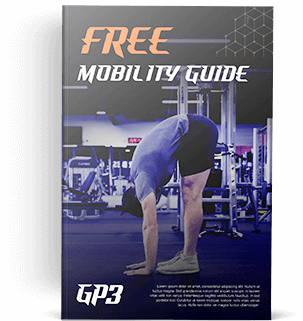Key Points:
1. Most of the angst people feel about their appearance and physical capabilities is mostly due to not feeling in control of where they want to be.
2. To develop this sense of control, it’s vital to master two of what I consider the main three nutritional skills.
3. These skills are: eating slowly and mindfully; managing cravings and mild hunger; and planning meals that keep you full and satisfied. Which two you choose is up to you.
Estimated reading time: 5-10 minutes
Newsflash: it’s possible to lose body fat fairly quickly and be completely miserable in the process.
Before we go any further, let me stop and congratulate myself. I know it’s deep insights like these that make you glad you subscribe to this blog.
In all seriousness, today we’re going to talk about the exact opposite: reducing body fat while actually enjoying what you eat. This makes “rebound” weight gain much less likely. In my own experience and that with helping clients, fat loss without the side order of misery depends on three crucial skills. We’ll get there in a minute, but first, let’s discuss something that’s inextricably intertwined with food: control. And if you don’t care for the background info, please feel free to scroll down to the section called “So How Do We Get there?” But hey, the “why” is important, too. I think you’ll be glad you stuck around.
Feeling in control of your physique
One of these days, I’m going to write a more philosophically oriented piece about what degree of control we actually have vs. what we perceive, but today we’ll stay much more grounded.
One of the main reasons nutrition is such an emotionally fraught topic is because it’s often associated with a lack of control. This can manifest in multiple ways. First, take the classic example of people engaging in disordered eating and overly-restrictive behaviors. This is typically attributed to feelings of limited control in other areas of one’s life. Given that eating is both quite personal and something that needs to be done daily (unless you’re fasting), it offers a perfect opportunity for someone to “make up for” feeling a lack of control elsewhere.
But we’re not going to focus on eating disorders today.
Instead, we’re going to cover feeling in control of your physical abilities and physical appearance.
Many people feel frustration, confusion, guilt, anxiety, and despair regarding food and nutritional choices because they perceive limited control over their appearance and abilities. They may have a vague idea of what to do in order to reduce body fat or gain strength, but they don’t have a concrete plan that won’t make them miserable in the process.
When you develop a sense of greater physical and nutritional autonomy, you’ll notice a reduced level of stress overall, I promise. Now, I won’t lie to you, this takes work. It will be boring and tedious at times, but it will definitely be worth it.
A brief detour down losing weight vs. reducing body fat lane
When people talk about wanting to lose weight, they’re typically referring to reducing their overall body fat percentage. If the scale number went down, but 90% of the weight lost was muscle, most people would not be happy with the resulting changes in appearance or the decrease in energy levels and strength.
So, when you read or say “weight loss,” think “fat loss.” Also, for context, the researchers at Stronger By Science found that 10-15% body fat for men and 18-23% body fat for women tends to be associated with the greatest levels of strength relative to overall body weight. This isn’t to say that these body fat levels are automatically “healthy,” but I think they’re reasonable targets to strive for.
So, how do we get there?
As I mentioned previously, I think this comes primarily down to three specific skills:
- Managing hunger and cravings
- Planning meals and snacks
Eating slowly and mindfully
Managing Hunger and Cravings
I wrote an entire piece dedicated to this skill, because I think it’s that important. I’d recommend reading it if you want a deeper dive, but here’s the key takeaway. Too many people allow hunger to control them. They never truly learn that just as they overcame other animalistic urges, like going to the bathroom the second they feel the need or reacting with violence when upset, they can also learn to keep hunger in check.
Learning to treat moderate hunger as something that can be acted upon, but doesn’t need to be, provides a great deal of physical and mental relief in the process of gaining control over our nutritional goals.
Planning Meals and Snacks
Precision Nutrition is a company whose articles I find incredibly valuable. They have a concept called the Nutrition Owner’s Manual. Just like with a vehicle, it’s a set of operating instructions for your body that you create. I believe coming up with some variation of it that works for you is one of most important tools you can use when planning. This is where a lot of the detective work I mentioned previously comes into play.
Essentially, it’s vital to examine what you eat so that you can devise a list of meals and snacks that meet the following criteria:
- You like them
- They agree with your stomach and digestive system
- They keep you full for a reasonable amount of time, relative to the number of calories
Longtime readers of this blog will know that I have a complicated relationship with counting calories, but I do recommend everyone have at least some practice and familiarity with the concept. So, let me expand on the final bullet point. Take two meals of 600 calories apiece. One keeps you full and satisfied for two hours, and the other keeps you full and satisfied for five hours. The second one is a better choice for you. This is true regardless of the nutritional makeup of each of the meals.
So, developing a list of meals that keep you full for what you personally feel is “long enough,” should be a priority.
Further, planning allows you to tailor your eating schedule to your unique hunger patterns. Not everyone gets hungry at 7 a.m., 12 p.m., and 6 p.m. Bringing awareness to your patterns and preferences and scheduling your meals around them will allow you to make choices conducive to your goals. Further, planning meal and snack times can help you avoid the undesirable situation of trying to decide what to eat when you’re already incredibly hungry. That doesn’t tend to go well.
Do take note, meal planning is not the same as meal prepping. Some people enjoy doing this, and others do not. While it’s an incredibly useful tool, I don’t believe it’s as vital as planning.
Finally, planning comes with its own degree of flexibility and customization. Some people prefer planning their meals a day or two ahead, and others gravitate towards planning a day’s lunch and dinner after they’ve finished breakfast. Like with everything nutrition-related, this is completely up to you.
Eating Slowly and Mindfully
You may have heard that it takes up to 20 minutes for the brain to realize that the stomach has been fed. While this isn’t perfectly applicable in all situations, it’s still a good rule of thumb. Now, many people find this to be a particularly difficult skill to master, usually because we’re conditioned to do the exact opposite all throughout childhood.
This is likely an oversimplification, but in many middle class and affluent families, kids’ schedules are hectic and packed, leaving little time to sit down and enjoy a meal. Instead, food is wolfed down in the few free minutes between activities, or even consumed in the car on the way to the next one.
On the other side of the coin, food insecurity is a massive problem in the United States. Uncertainty around where and when the next meal will come isn’t exactly conducive to slow, mindful eating, either.
However, when you can master this skill, everything else gets easier.
To practice it, start by trying one of the three following strategies:
- Put your utensil down between each bite, finish chewing, then take a single breath. Pick your utensil back up and take another bite.
- In between every bite, take a sip of your drink.
- Set a timer and wait 30 seconds between each bite.
All of these are likely to feel unfamiliar and uncomfortable at first, but the payoff will be massive.
Tying this all together:
All three skills help you consume fewer calories than your body burns. They solve the problems of when, what, and how to eat. In isolation, each skill is beneficial, but probably not enough.
Here’s the good news. You don’t need to be great at all of them. In fact, you only need to master two of them. Which two is up to you, because any combination will be very powerful. Let’s examine these possible combinations more closely.
If you can manage hunger/cravings and you’re proficient at planning out meals and snacks, it won’t matter if you eat quickly. You’ll have a schedule to follow and mild to moderate hunger won’t be a big deal to you.
If you’re great at planning and eating mindfully, it won’t be a problem when hunger or a craving strikes, because you’ll be able to schedule meals around your normal “hunger windows” and indulge without binging on the occasion when you get a hankerin’ for something sweet.
Finally, if you’re skilled at slow, mindful eating and managing hunger and cravings, you’ll never need to plan a meal. You can mostly eat whenever and whatever you want without fear of overdoing it.
Now, which skills you choose is completely up to you. Personally, I often still struggle with slow, mindful eating. If there’s one that really doesn’t resonate with you but the other two do, great! Focus on those. There’s no need to be perfect here.
But, when you get “good enough” at two or three of these, something important will change. Even if you’re not currently where you want to be in terms of nutritional goals, you won’t despair. You’ll know what to do and how to do it, without making yourself miserable in the process.
And that’s a great place to be.
In the meantime, before you go, I’d love to hear from you! Which of these skills have you already mastered? Which still need work? Reply to this email and let me know!

